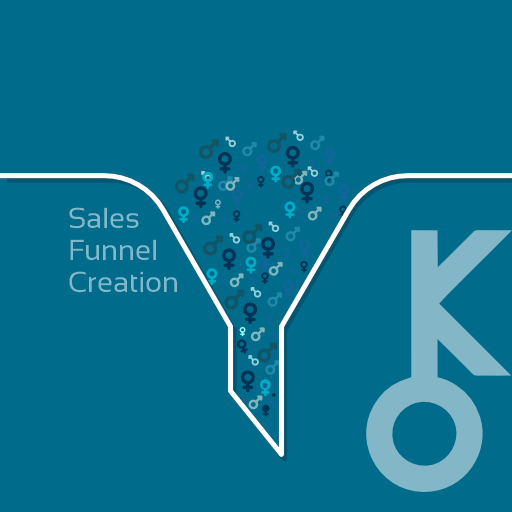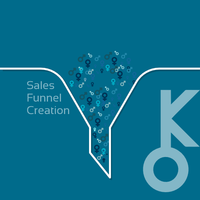Understanding the Sales Funnel

The sales funnel is a concept widely used in marketing and sales to understand and analyze the customer journey from initial awareness to final purchase. It provides businesses with a structured framework for managing leads and converting them into paying customers.
Stages of the Sales Funnel
The sales funnel consists of several stages, each representing a different phase of the customer's buying process. These stages can vary depending on the nature of the business, but generally include:
Awareness: In this stage, potential customers become aware of your brand, product, or service. They may come across your business through various channels such as social media, online advertisements, or word-of-mouth referrals.
Interest: Once people are aware of your offerings, some will show interest by conducting further research or seeking more information about your products or services. At this stage, it's crucial to capture their attention and provide relevant content that educates and nurtures their curiosity.
Consideration: In the consideration stage, potential customers evaluate different options available in the market before making a decision. This is where you need to showcase how your solution stands out from competitors and meets their specific needs.
Intent: Once prospects have evaluated their options and have a clear intent to make a purchase, they enter the intent stage. At this point, they may request price quotes, negotiate terms, or take other actions indicating their readiness to buy.
Evaluation: During this stage, prospects thoroughly analyze your offering's features and benefits while comparing alternatives against one another to make an informed decision that aligns with their requirements.
Purchase Decision: The purchase decision stage involves closing the deal with customers who choose your product or service over competitors'. It requires effective communication skills combined with negotiation techniques tailored for success.
Retention: After completing a successful purchase transaction with a customer, your efforts should shift towards ensuring their satisfaction and loyalty. This stage focuses on keeping customers engaged, offering post-purchase support, and encouraging repeat purchases.
Advocacy: Customers who are particularly satisfied with their purchase may become advocates for your brand through positive word-of-mouth referrals or online reviews. Harnessing this advocacy can not only drive additional sales but also expand your customer base organically.
Importance of Sales Funnel Understanding
Understanding the sales funnel is essential for any business aiming to grow its customer base and boost revenue. By mapping out the different stages of the customer journey, businesses can develop targeted strategies to address each stage effectively.
It enables businesses to:
Identify potential bottlenecks or areas where prospects drop off in the buying process, allowing them to optimize those stages for higher conversion rates.
Tailor marketing messages and content specifically to meet the needs and preferences of prospects at each stage.
Allocate resources efficiently by focusing efforts on activities that generate the most impact throughout the sales funnel.
Build stronger relationships with customers by delivering relevant information and valuable interactions that align with their decision-making process.
Overall, understanding the sales funnel allows businesses to have a clear roadmap for guiding leads from initial awareness all the way through to becoming loyal customers. It ensures a systematic approach that maximizes conversion rates while providing excellent customer experiences at every step along the way.
Successfully implementing an effective sales funnel requires ongoing analysis, refinement, and adaptation based on real-time feedback from key performance indicators (KPIs) such as conversion rates, average order value (AOV), customer lifetime value (CLV), and other metrics specific to your industry or business goals.
By continuously optimizing your sales funnel based on data-driven insights, you can consistently improve conversions and drive sustainable growth for your business.
Sponsored
Sponsored
Sponsored
Explore More:

The Impact of AI and Machine Learning
As technology continues to advance at a rapid pace, businesses are constantly looking...

Future of Sales Funnels
The future of sales funnels is an exciting and promising concept for businesses...

Lessons Learned from Failed Funnels
In the realm of sales funnel creation, case studies serve as valuable resources...

Successful Sales Funnel Examples
In sales funnel creation, case studies play a crucial role in demonstrating the...

Case Studies in Sales Funnel Creation
In the world of sales and marketing, case studies play a crucial role...

Sales Funnel Recovery Strategies
Sales funnels are a critical component of any successful sales and marketing strategy....

Improving Funnel Efficiency
A sales funnel is a crucial component of any business's marketing strategy. It...

Identifying Funnel Leaks
A sales funnel is a systematic approach to guiding potential customers through a...

Sales Funnel Troubleshooting
Sales funnel troubleshooting is the process of identifying and resolving issues or bottlenecks...

Sales Funnel Tools and Software: Landing Page Builders
Sales funnels are essential in driving conversions and increasing revenue for businesses. To...

Sales Funnel Tools and Software: Email Marketing Tools
Sales funnel tools and software refer to the various technologies and platforms available...

Sales Funnel Tools and Software: CRM Software
Sales funnel tools are software programs or applications designed to help businesses track...

Sales Funnel Tools and Software
A sales funnel is a framework used by businesses to guide potential customers...

Measuring Sales Funnel Performance: Analytics and Reporting
Measuring sales funnel performance analytics and reporting is a crucial aspect of any...

Measuring Sales Funnel Performance: Sales Funnel Metrics
Measuring the performance of your sales funnel is crucial for understanding the effectiveness...

Measuring Sales Funnel Performance: Key Performance Indicators (KPIs)
Measuring the performance of a sales funnel is crucial for any business aiming...